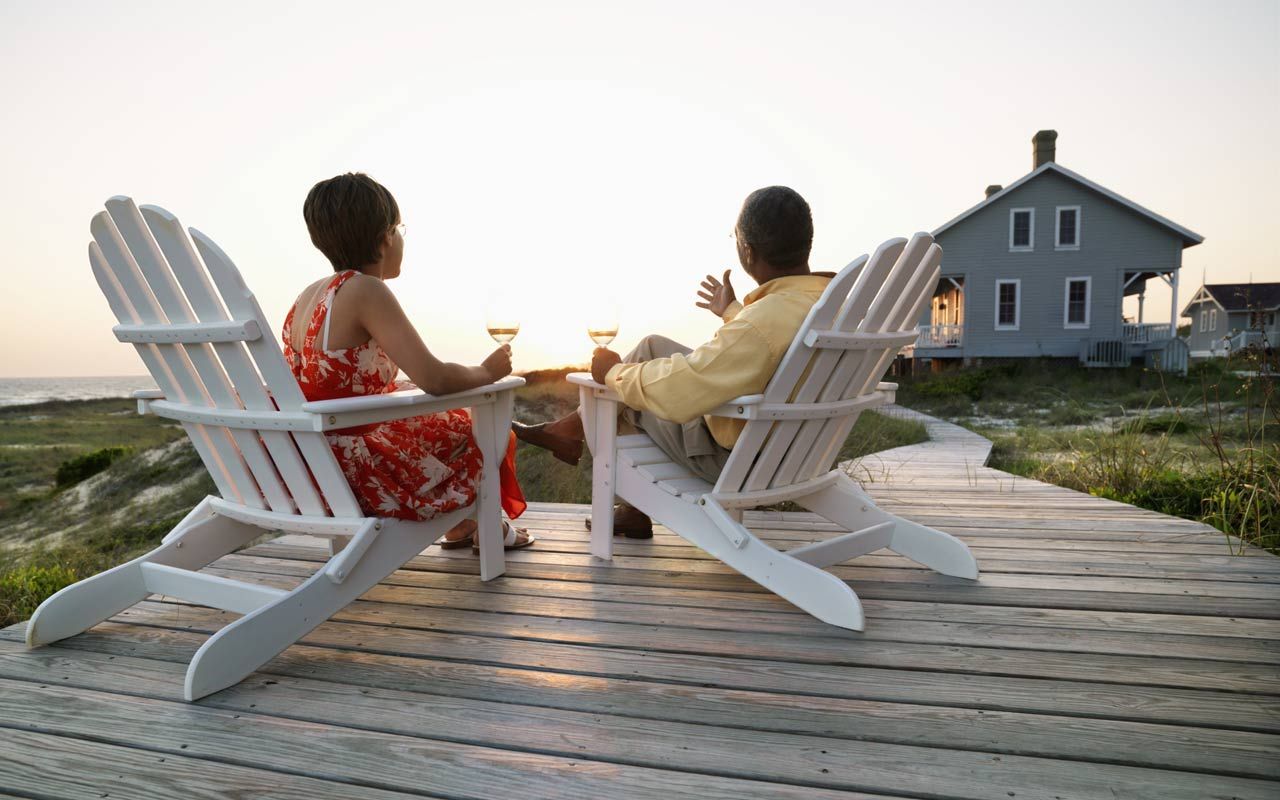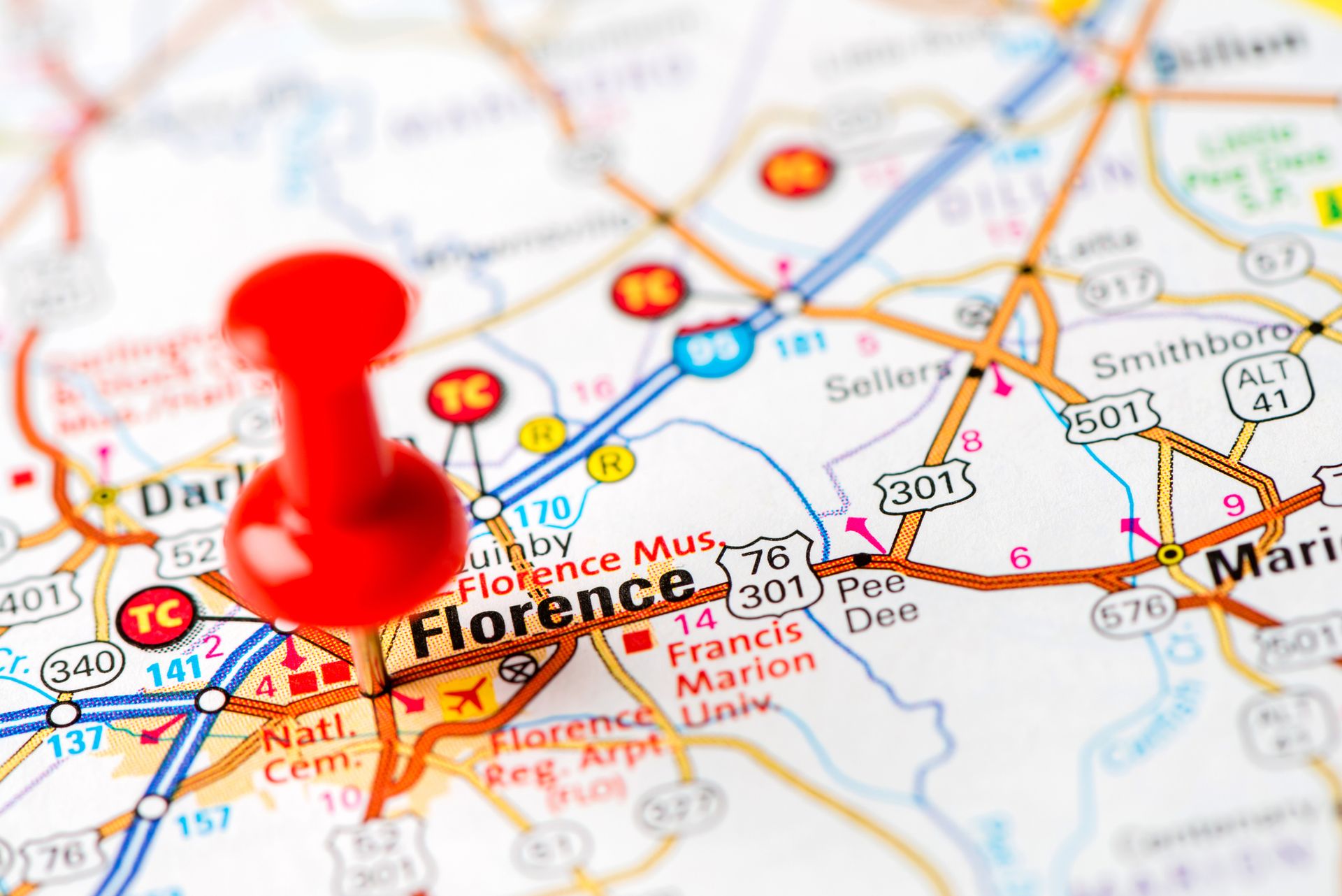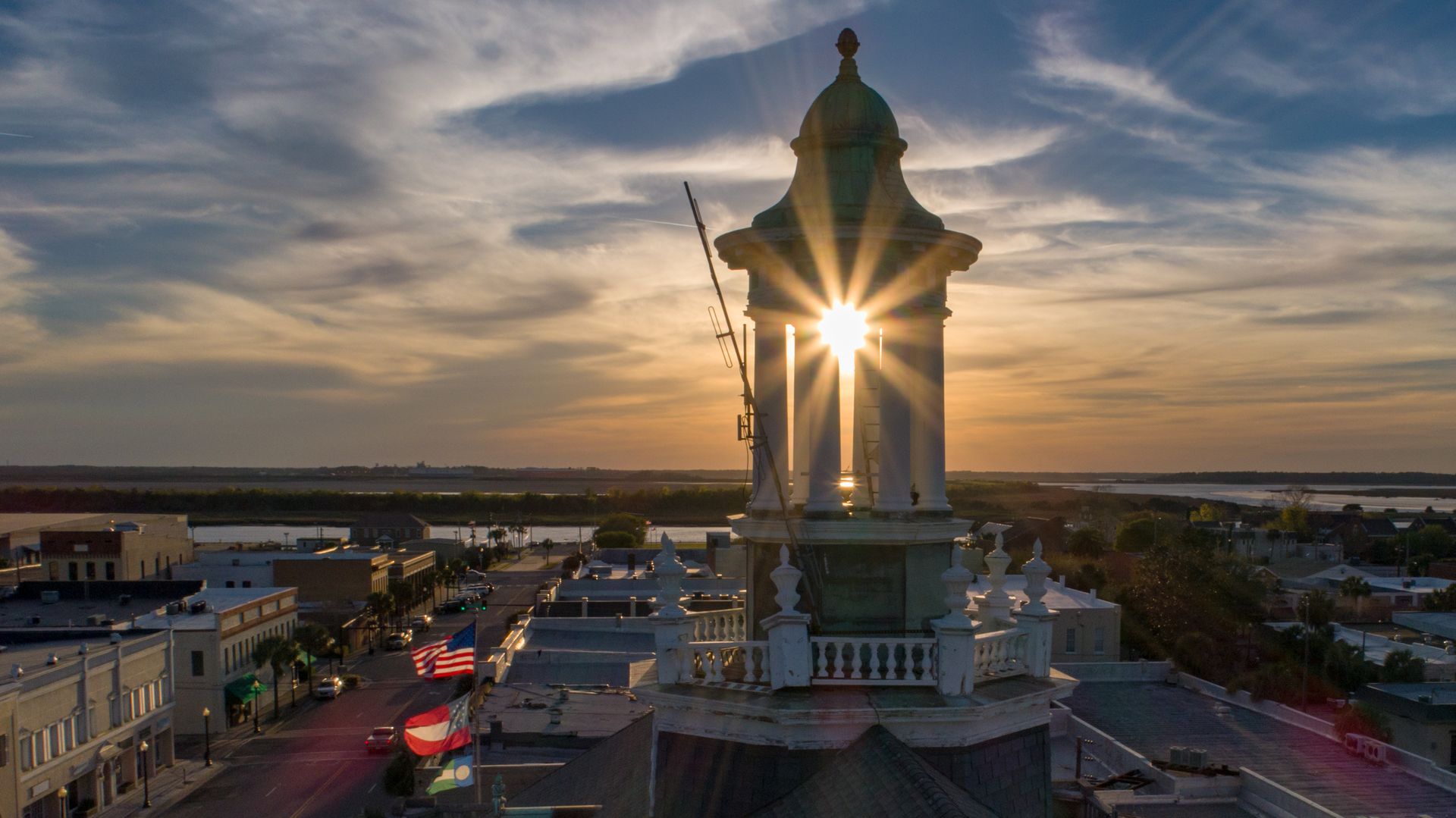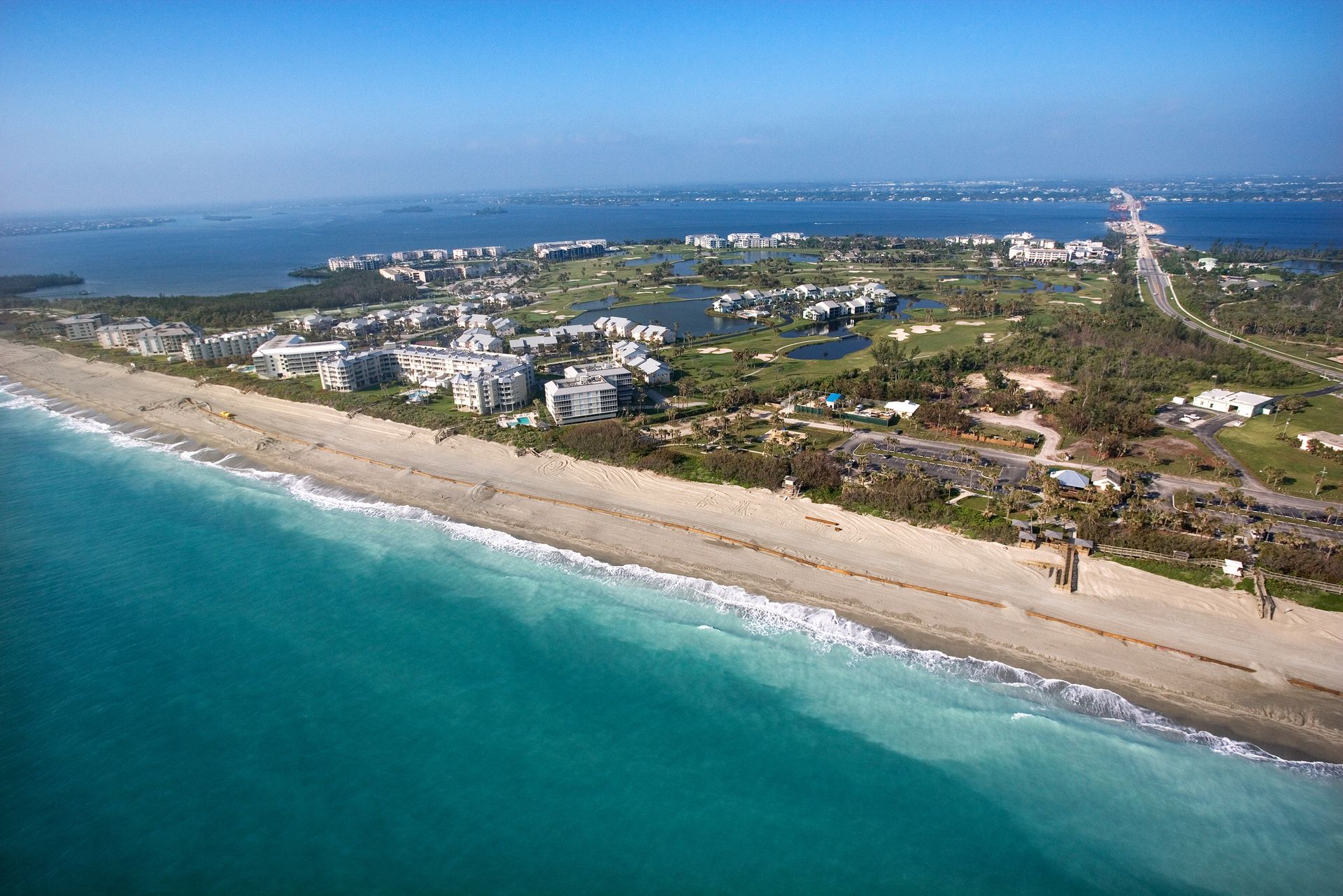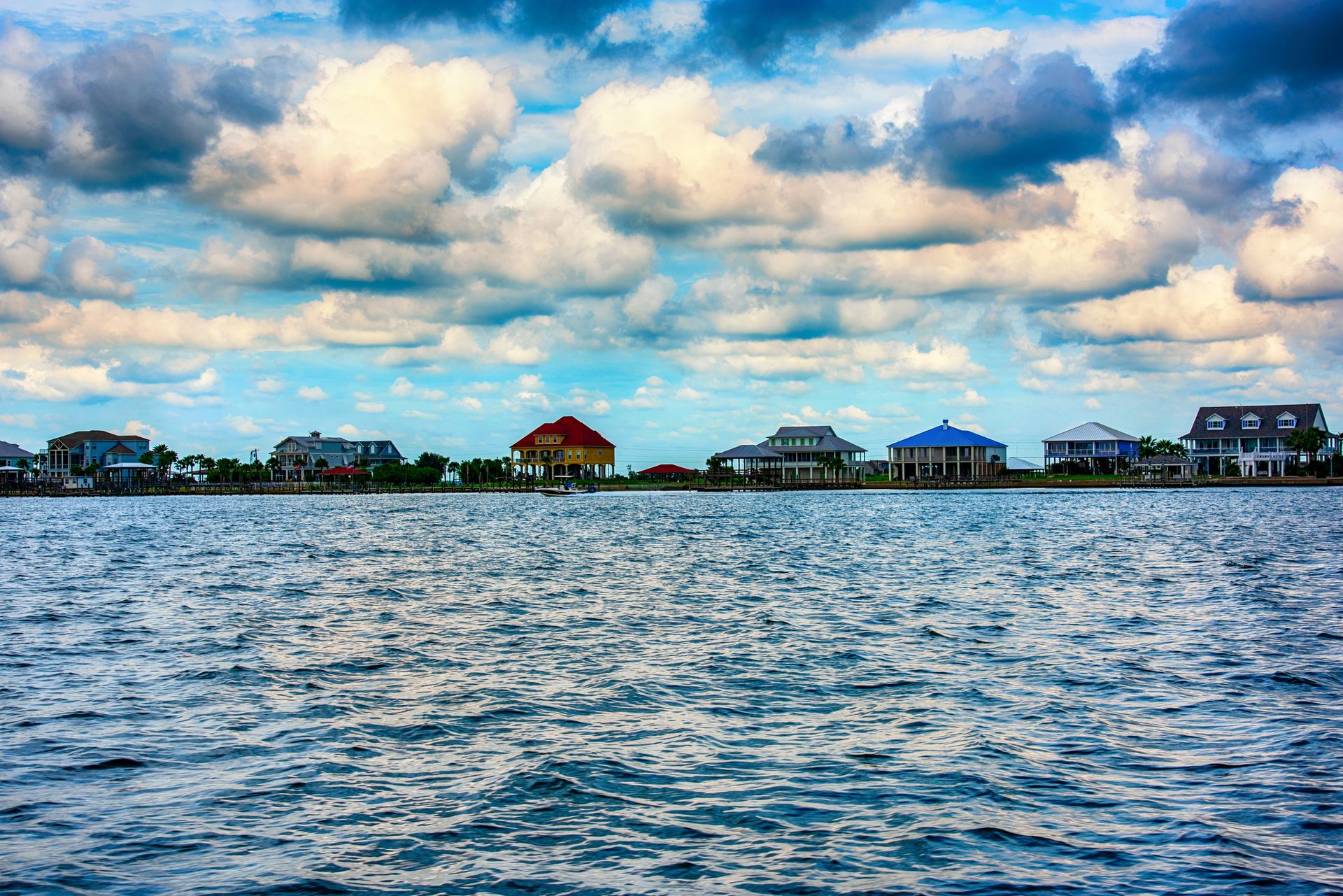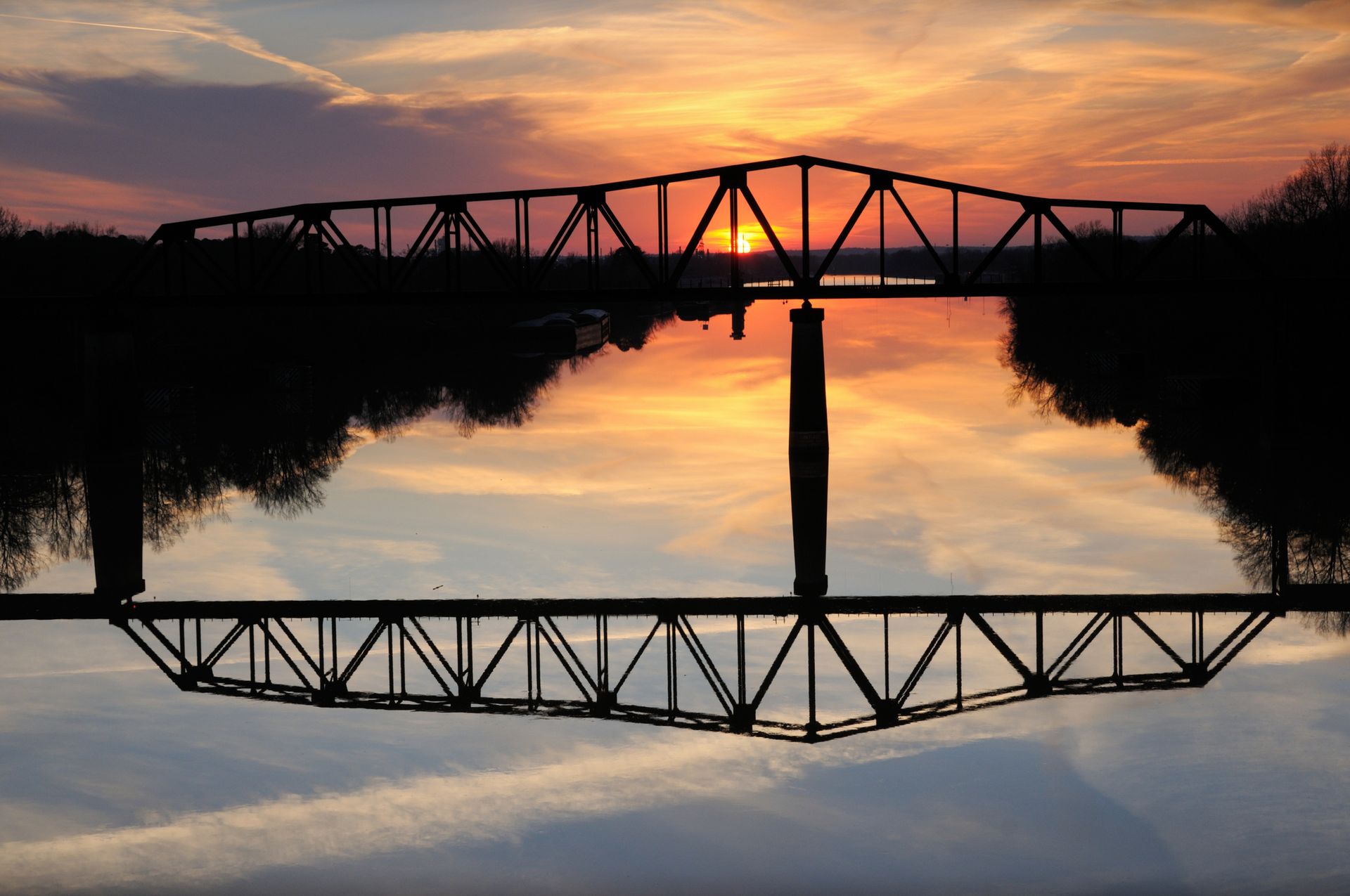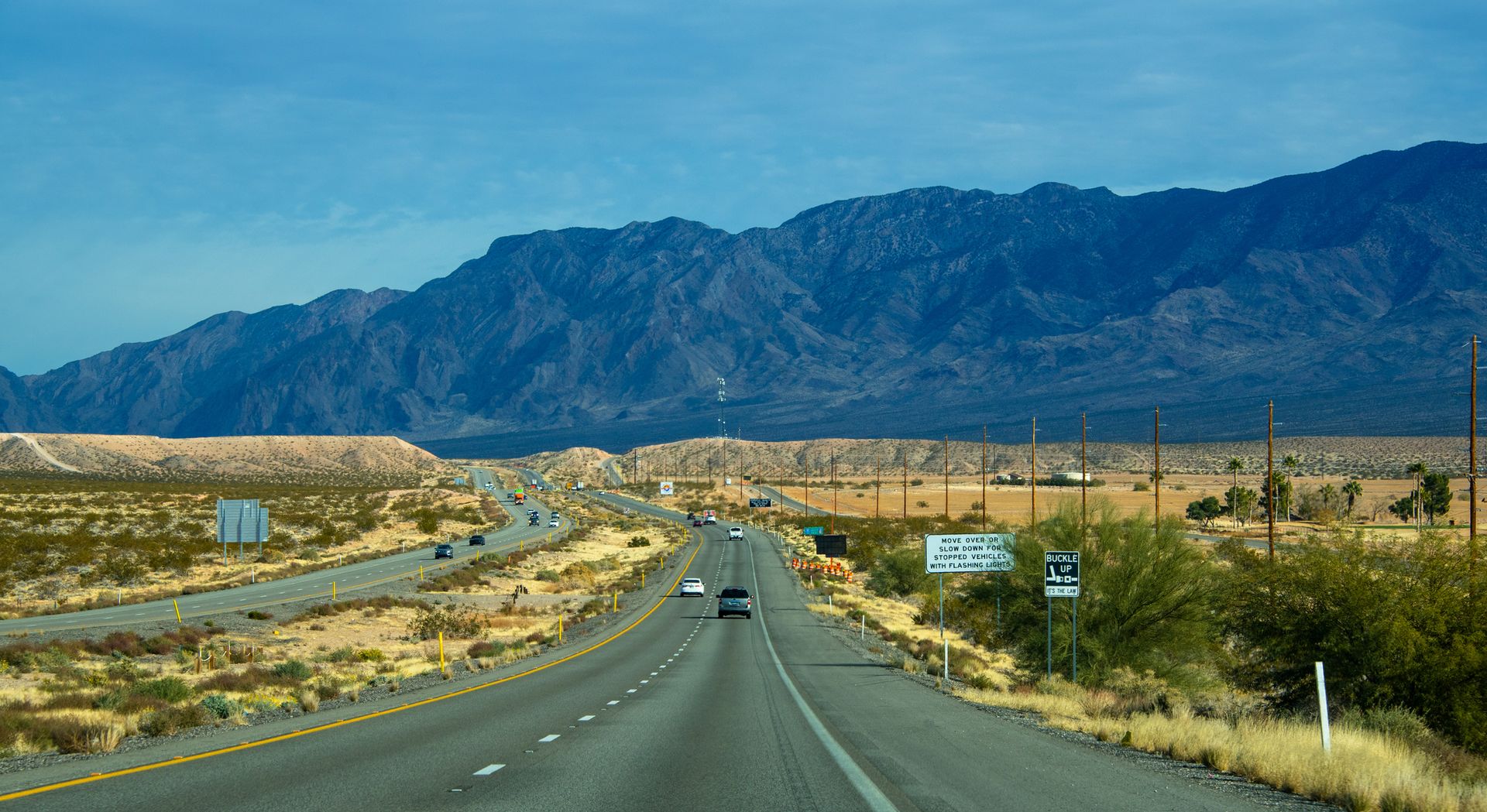8 Great Places for Snowbirds to Land
These affordable warm-weather cities for snowbirds offer plenty of housing options, abundant activities for retirees and access to good health care.


If you’re not ready to move in retirement but are weary of shoveling snow in the winter, renting or buying a home in a warm-weather state could offer the best of both worlds. You can keep your longtime home near family and friends and spend the cold-weather months in a sunny destination that offers year-round pickleball.
More than 1 million people spend part of the year in Florida, and many of them are retirees. The Carolinas, Georgia and Alabama have also become popular destinations for snowbirds. As millions of baby boomers retire, southbound traffic on I-95 is likely to get even more intense.
But while the snowbird lifestyle may be appealing during the dark days of December, features that make a destination a great vacation spot may not translate into a desirable long-term stay, says Andy Baxley, a certified financial planner in Chicago. “An ideal snowbird community is going to offer opportunities for community and engagement, not just relaxation,” he says.

Sign up for Kiplinger’s Free E-Newsletters
Profit and prosper with the best of expert advice on investing, taxes, retirement, personal finance and more - straight to your e-mail.
Profit and prosper with the best of expert advice - straight to your e-mail.
We’ve selected eight cities that offer appealing options for snowbirds, including quality hospitals and physicians, plenty of short-term rentals, retiree-friendly amenities, and low taxes. Because not all snowbirds want to flock to Florida, we’ve provided destinations in seven other warm-weather states across the U.S.
As you review our picks — or explore some of your own — here are factors to consider before you start stockpiling sunblock.
Buying versus renting in retirement: Renting will help you determine whether a community is a good fit before you decide to purchase a condo or house. Kevin McLoughlin, a certified financial planner in Sterling, Va., says he encourages clients who are thinking about buying a second home in a warmer climate to spend one winter renting.
“Sunshine is a plus, but you’ve also got to create a sense of meaning if you’re going to stay for a month or two,” says Heather Gibson, a professor of leisure, tourism and sport at the University of Florida.
In 2016, Steve Parrish, a professor and scholar in residence at the American College of Financial Services, and his wife, Carla, began spending what Parrish calls “long, working vacations” at rental properties near the beach in St. Augustine. In 2020, they bought a condo in St. Augustine and divided their time between Florida and Des Moines. They decided to move to St. Augustine permanently and sold both of their condos this summer, which enabled them to buy a single-family home in a St. Augustine gated community.
Owning two homes can be expensive, even if you’ve paid off the mortgage on your primary residence and can afford to pay cash for your second home (more on that below). The cost of homeowners insurance has skyrocketed in many coastal communities, and insurers typically charge higher premiums for second homes; because second homes are usually vacant part of the year, they’re at greater risk for insurance claims. You’ll also have to pay property taxes, which may be higher than taxes in your home state. Maintenance and utilities add to the cost, too. Renting will help you get an estimate of the costs of owning two homes.
Health care: Even if you’re healthy now, that could change while you’re basking in the sun, so make sure that you have access to good medical care during the winter months.
This is particularly important if you’re enrolled in Medicare Advantage, a private insurance plan that typically requires beneficiaries to use in-network physicians and hospitals. If you have a Medicare Advantage plan, contact the provider to find out whether you’ll be able to get in-network care at a potential winter destination. Otherwise, you may have to pay extra for an out-of-network provider, or your care might not be covered at all.
Some Medicare Advantage plans are specifically designed for individuals who will need coverage in more than one location, which is worth considering if you’re planning to be a snowbird. Another option is to enroll in original Medicare, which provides coverage anywhere in the U.S. as long as the provider accepts it.
You’ll also want to sign up for a medigap plan, a private insurance policy that cover deductibles, co-payments and other expenses. Premiums for a Medicare–medigap combination will likely be higher than those for Medicare Advantage, but you could end up paying less for health care in the long run because you won’t have to worry about out-of-network costs.
If you have a Medicare Part D plan to cover prescription drugs, you’ll also need to determine whether the coverage extends to your winter destination. These plans are typically based on your primary location, but many have extensive pharmacy networks. Arranging for mail-order prescriptions of medications you take regularly is also an option and could save you money.
Taxes: States in the South and Southwest have long appealed to affluent retirees seeking to escape high state tax rates. But to demonstrate that you’re a full-time resident of a no-tax or low-tax state, you must spend the majority of the year in that jurisdiction — six months and one day at a minimum.
Even then, you should take additional steps to establish residency because tax agencies in high-tax states are increasingly challenging wealthier snowbirds who claim to be residents of no-tax states. Register to vote, obtain a driver’s license and register a vehicle in your new location.
Other documents that could demonstrate that you qualify to be a full-time resident include statements from an account with a local bank and bills from utilities and local health care providers. Keep records of any transactions that could show you have ties to the warm-weather state. In one court case, a judge ruled that an individual demonstrated residency in Texas because his dog was registered there.
Estate planning: Each state has its own laws and regulations governing estate planning, which complicates matters for snowbirds. For example, a health care directive or power of attorney that’s legally binding in one state may not be recognized in another.
When the Parrishes were dividing their time between Iowa and Florida, they had powers of attorney for health care executed in both states and kept the documents in both places so they would be available if one spouse ended up in the hospital.
Owning homes in more than one state can also create headaches for your heirs, since they may be forced to go through probate in both states. Placing the properties in a revocable living trust will allow them to be transferred to your heirs, under the terms of the trust, outside of probate.
Financing a snowbird nest
While renting a condo or second home in a warm-weather state may make sense for a year or two, at some point you may decide you’d rather have a place of your own. That way, you’ll always have somewhere to stay during the winter months. It could also provide a way to downsize if you decide to sell your home up north.
After soaring during the pandemic, sales of second homes dropped sharply in 2023, according to an analysis by online real estate mortgage broker Redfin. Early figures for 2024 indicate that demand for mortgages on second homes remains tepid, Redfin says, primarily due to high mortgage rates. The drop in demand has forced some sellers of vacation homes to lower their prices and offer more concessions to prospective buyers, says Daryl Fairweather, chief economist for Redfin.
However, the same factors that have depressed the market for second homes can make buying one more challenging. Although mortgage rates have edged lower recently, the average rate for a 30-year, fixed-rate home loan remains at about 7%, and rates for second homes are typically 0.5 to 0.75 percentage point higher than those for primary homes.
That’s not a concern if you can afford to pay cash for your second home. But some retirees may be reluctant to withdraw that much from their savings, and taking a large distribution from a traditional IRA or other tax-deferred account could trigger a large tax bill. Other options:
A traditional first mortgage: Being out of the workforce isn’t necessarily a barrier to buying a second home, says Bill Banfield, chief business officer for Rocket Companies, parent company of Rocket Mortgage.
Income from Social Security, a traditional pension, or continuous withdrawals from a retirement savings account can demonstrate to a lender that you can repay a mortgage, says Banfield. Retirees who don’t have a regular income stream but have a large amount of assets may also qualify.
A home equity loan: A home equity loan is a lump-sum loan based on the amount of equity you have in your home and its fair market value. In general, lenders will allow you to borrow up to 85% of your home equity. You’ll repay the loan in monthly installments at a fixed interest rate over a period of anywhere from five to 30 years.
As is the case with mortgage rates, interest rates for home equity loans have risen since the Federal Reserve started hiking short-term rates in March 2022. Recently, the average rate was 8.61%, according to Bankrate.com. Your own rate will vary, depending on your credit score and payoff terms.
Some retirees use a combination of cash and loans to buy their second homes, Banfield says. For example, you could withdraw money from your savings to cover a portion of the cost and finance the rest with a first or second mortgage.
A reverse mortgage: Many retirees use income from a reverse mortgage to age in place, but you may also be able to use it to purchase a second home, says Steve Resch, vice president of retirement strategies at Finance of America Reverse, a reverse mortgage lender.
To be eligible for a government-insured home equity conversion mortgage (HECM), you must be at least 62 years old and have significant equity in your home, and the home must be your primary residence. You can convert your home equity into a lump sum, monthly payments or a line of credit. The maximum payout for which you’ll qualify depends on your age (the older you are, the more you’ll be eligible to borrow), interest rates and the appraised value of your home.
You can use the proceeds from the reverse mortgage to make a down payment or make an all-cash purchase, Resch says. However, the reverse mortgage must be on your primary residence, so you must continue to live in your northern home for at least half of the year. (If you’re away from your primary residence for longer than six consecutive months for nonmedical reasons, the loan usually becomes payable in full.)
HECM regulations prohibit borrowers from taking out more than 60% of the available proceeds in the first year, which could limit the amount available for an all-cash purchase. One way to get around this problem is to take out the reverse mortgage a few years before you plan to buy a second home.
A reverse mortgage doesn’t have to be repaid as long as you spend at least half of the year in your primary residence. However, up-front closing costs are higher than those for a home equity loan, so a reverse mortgage usually isn’t a good choice if you plan to sell your primary residence in less than five years.
SOURCES: Figures for living costs are based on the Council for Community and Economic Research’s Cost of Living Index. The average for all participating places is 100. Population data comes from the U.S. Census Bureau. Typical monthly rent and mortgage payments are provided by Zillow. Hospital information is from Medicare.
Florence, SC
Population: 40,609
Cost of living: 95.0
Average temperature during snowbird season: 58 degrees
Number of hospitals within 25 miles: 6
Closest airport: Florence Regional Airport
Local vibe: Growing community with a rich history
Florence was a major railroad hub in the 19th century. For decades after its railroad heyday, the area was better known for empty storefronts and the demolition of culturally significant buildings in favor of new construction.
However, in 2011, the city and a group of dedicated volunteers embarked on a revitalization plan that has attracted more than 90 new businesses to the community, along with more than 100 new housing units. In 2023, Downtown Florence Main Street was one of three winners of the Great American Main Street Award, which recognizes communities for comprehensive, preservation-based commercial district revitalization.
The city is adorned with whimsical public art, reflecting its lively arts scene, and is home to award-winning entertainment venues, such as the Florence Little Theatre, a community theater that has been providing high-quality theatrical productions for more than 90 years. The Florence County Museum offers a mix of historical exhibits and contemporary art.
One- and two-bedroom apartments are available for less than $1,500 a month. Home prices are affordable as well, with condos available for less than $150,000, according to listings on Zillow. However, buyers may want to act fast. In March 2024, AESC, a Japanese battery-technology company, announced a $1.5 billion expansion of its electric-vehicle battery plant in Florence County, which is expected to create 1,080 new jobs and increase demand for housing.
MUSC Health Florence Medical Center is a 396-bed acute care facility with about 300 physicians representing all major specialties. Carolina Pines Regional Medical Center, located in nearby Hartsville, is a 116-bed acute care facility that offers emergency services, several surgical specialties, and inpatient and out-patient care.
South Carolina’s state sales tax rate is 6%. Localities can add as much as 3%, and the average combined rate is 7.5%, according to the Tax Foundation. Groceries and prescription drugs are exempt. For residents, Social Security and military retirement income are tax-exempt; other income is taxed at rates ranging from 3% to 6.4%.
Brunswick, GA
Population: 16,122
Cost of living: 85.0
Average temperature during snowbird season: 68 degrees
Number of hospitals within 25 miles: 1
Closest airport: Jacksonville International Airport
Local vibe: Historic coastal living
Located in coastal Georgia, Brunswick has a lot to offer if you love to be outdoors. Blythe Island Regional Park provides an ideal location for camping, picnicking, fishing and boating, while the Marshes of Glynn Overlook Park is a great place for scenic walks and bird watching. After a day of outdoor adventuring, snowbirds have a host of attractive dining options to choose from, including award-winning cuisine at Mr. Shuck’s Seafood.
Two-bedroom apartments and condos are available in Brunswick for less than $1,500 a month, and buyers can find three-bedroom condos for less than $200,000.
Brunswick is adjacent to two famous resort islands, St. Simons and Jekyll Island. While St. Simons is perhaps the more popular destination of the two coastal isles, Jekyll Island also boasts beautiful beaches, bike trails and historical landmarks, including a financial landmark of sorts.
In November 1910, six men met secretly at the Jekyll Island Club to plan a reform of the U.S. banking system; the meeting laid the foundation for the Federal Reserve System. Homes on these islands are considerably pricier than those in Brunswick, with the average house in St. Simons going for more than $650,000 and condos selling for $350,000 and up.
The Southeast Georgia Health System’s Brunswick campus is a 300-bed acute care hospital with a cardiac rehabilitation and cancer care center, among other services. Baptist Medical Center Nassau, a 62-bed community hospital, is located 34 miles away — in Florida, just over the state line — and has physicians in 29 different specialties.
Georgia’s state sales tax rate is 4%, and the combined state and local average rate is 7.35%, according to the Tax Foundation. Prescription drugs are exempt from sales taxes; groceries are exempt from state sales taxes, but local taxes may apply. Georgia doesn’t tax the Social Security benefits of full-time residents. The state taxes most other retirement income, but taxpayers 62 and older can exclude up to $35,000, and those 65 and older can exclude up to $65,000. Other income is taxed at a flat rate of 5.39%.
Vero Beach, FL
Population: 16,354
Cost of living: 93.4
Average temperature during snowbird season: 77 degrees
Number of hospitals within 25 miles: 4
Closest airport: Vero Beach Regional
Local vibe: A thriving arts scene
This longtime snowbird destination’s historic downtown area is a haven for art lovers. Check out the Gallery Veritas & Art Library, Gallery 14, or the Artists Guild Gallery of Vero Beach for selections of contemporary art. Just up the road, the Vero Beach Museum of Art has shifting exhibitions of international and national contemporary artwork, and it offers volunteer opportunities for those who want to get involved in the arts community.
The Museum of Art sits near Riverside Park, a waterfront park nestled close to town. The Riverside Theater showcases a variety of performances, including musicals, plays, concerts and comedy shows, and it offers dance classes for children and adults. Locals also love pickleball, fishing in the Indian River in nearby Sebastian, and relaxing at one of the breweries or distilleries that have recently opened in the area.
The cost of housing in Vero Beach is 83.1% of the national average, and at least 25% of the housing is available for seasonal residents, says Debbie Avery, a real estate agent and board member of the Vero Beach Chamber of Commerce. One- and two-bedroom condos are available for around $150,000, according to Zillow. If you’d rather rent, you can find one- and two-bedroom units between $1,500 and $2,500 a month.
Vero Beach is home to Cleveland Clinic Indian River Hospital, a 332-bed facility that offers preventive, primary and acute hospital care and a broad array of specialty services. Other hospitals within 25 miles include HCA Florida Lawnwood, which has 435 beds and provides a full range of inpatient and outpatient services, and HCA Florida St. Lucie Hospital, a 222-bed hospital that offers a wide spectrum of services, including a senior-friendly emergency room.
Florida has a 6% statewide sales tax. Localities can add as much as 2%, and the average combined rate is 7.002%, according to the Tax Foundation. Groceries and prescription drugs are tax-exempt. Snowbirds who decide to make Florida their primary residence will pay no income tax on retirement income or Social Security benefits.
Slidell, LA
Population: 28,781
Cost of living: 99.0
Average temperature during snowbird season: 69 degrees
Number of hospitals within 25 miles: 9
Closest airport: Louis Armstrong New Orleans International Airport
Local vibe: Small-town southern charm
Just 20 minutes from New Orleans, Slidell offers small-town living and a rich cultural heritage. The town hosts several local festivals and events throughout the year, including the Slidell Heritage Festival, which celebrates local history and traditions.
Like much of Louisiana, Slidell participates in Mardi Gras with parades, balls and other festivities. And you’ll find no shortage of places that dish up traditional Creole, Cajun and southern food, including Palmettos on the Bayou, a waterfront restaurant with a relaxed atmosphere and award-winning cuisine.
Situated near Lake Pontchartrain and the Gulf Coast, Slidell is also a popular spot for fishing and boating. Nearby Honey Island Swamp offers opportunities for guided swamp tours and close-up views of otters, gators, great blue herons, egrets and turtles — and with any luck, the Honey Island Swamp Monster, sometimes referred to as the “Tainted Keitre,” which inhabits the swamp, according to local legend.
Renters can find one-bedroom units for less than $1,500 a month. Single-family homes are available for less than $250,000, according to Zillow — below the national average.
There are nine hospitals within 25 miles of Slidell, so retirees have their pick of medical providers for their health-care needs. Slidell Memorial Hospital is a 223-bed acute care facility with specialties in cardiology and cancer. Our Lady of the Lake Surgical Hospital has 32 beds and specializes in cardiology, neurosurgery and orthopedics, among others.
Louisiana has a 4.45% sales tax rate, and the combined average state and local sales tax rate is 9.55%, according to the Tax Foundation. Groceries and prescription drugs are exempt. Retirees who make Louisiana their full-time residence won’t pay taxes on Social Security benefits or federal retirement benefits, including military benefits. Residents 65 and older can also exclude up to $6,000 from state income tax, which ranges from 1.85% to 4.25%.
Northport, AL
Population: 37,961
Cost of living: 91.7
Average temperature during snowbird season: 50 degrees
Number of hospitals within 25 miles: 2
Closest airport: Tuscaloosa Regional Airport
Local vibe: Barbecue and college football
If you are looking for a town with southern charm and plenty of culture, Northport fits the bill. Each October at the annual Kentuck Art Center & Festival, art lovers can participate in educational workshops and see folk art made out of license plates and other unique objects. The city’s majestic Black Warrior River and the scenic Van de Graaff Park and Arboretum are inviting for retirees who want a winter getaway where they can fish and boat.
Pay a visit to Dreamland BBQ in nearby Tuscaloosa for authentic southern cuisine. And if you’re a college football fan, you can head to Tuscaloosa to watch the University of Alabama Crimson Tide during the fall and winter. Seniors can also take advantage of classes and volunteering opportunities at the university’s Osher Lifelong Learning Institute.
Northport and surrounding areas offer a number of affordable housing options for snowbirds, says real estate agent Mary Harmon Young. If you’re in the market to buy, you can find three-bedroom houses for less than $250,000, according to Rocket Homes. Renters can find one- and two-bedroom apartments for less than $1,000 a month, and some two-bedroom places rent for as little as $675 a month, Harmon Young says. However, buyers and renters need to move fast because affordable housing is often snapped up quickly.
Health care is available through Northport Medical Center, which has 207 beds and numerous specialty medical services in addition to inpatient and outpatient care. The DCH Regional Medical Center, in Tuscaloosa, offers 583 beds and advanced trauma and cardiology services, as well as specialty units for cancer patients.
Alabama has a 4% statewide sales tax, and the average combined state and local rate is 9.289%, according to the Tax Foundation. Prescription drugs are exempt, but Alabama is one of a handful of states that tax groceries. Retirees who become full-time residents won’t pay taxes on Social Security benefits, federal government benefits, Alabama state and local government benefits, military retirement plans, or income from traditional pension plans. In addition, for residents 65 or older, up to $6,000 of retirement income is exempt from taxes. Other income is taxed at rates ranging from 2% to 5%.
Mission, TX
Population: 83,211
Cost of living: 80.9
Average temperature during snowbird season: 76 degrees
Number of hospitals within 25 miles: 8
Closest airport: McAllen Regional Airport
Local vibe: Birds and butterflies on the border
Attractions in Mission include the World Birding Center — home to more than 500 species — and the National Butterfly Center, a 100-acre wildlife center and nature preserve that features the largest variety of butterflies in the U.S.
Mission is situated on the U.S.–Mexico border, so it’s a good place to sample Mexican cuisine — try Pepe’s Tacos Al Pastor or Casa del Taco. Known as the “Home of the Grapefruit,” Mission celebrates its heritage every January with the Texas Citrus Fiesta. The historic Border Theatre, in downtown Mission, hosts arts performances and special movie screenings, and the building features wall-to-wall murals of the Rio Grande Valley before modernization.
Nearly 74% of vacant housing inventory in Mission is designed for seasonal use, according to a survey of snowbird destinations from StorageCafe, an online marketplace for storage facilities. Rising mortgage rates and falling demand have made Mission a buyer’s market, with three-bedroom houses available for less than $200,000.
There’s also a good supply of rentals for snowbirds, says Hortencia Camargo, real estate agent with Coldwell Banker. If you want to rent for the winter, you can find a one-bedroom apartment for about $900 a month. If you prefer to have access to amenities such as a pool, you can expect to spend $1,200 to $1,500 a month for a two-bedroom apartment, she says.
Camargo also notes there has been growth in different types of rentals in Mission, such as townhouses and multifamily homes. If you like to socialize with nearby neighbors, a townhouse rental community might be a good choice, she says.
Mission Regional Medical Center, with 297 beds, provides a full range of emergency services, including emergency cardiology and orthopedic care. Rio Grande Regional Hospital, in nearby McAllen, is a full-service, 320-bed acute care hospital that provides heart treatment, rehabilitation and therapy, stroke and vascular care, and urgent care.
Texas has a 6.25% state sales tax rate. Groceries, prescription drugs and over-the-counter medications are tax-exempt. Texas has no income tax, so full-time residents pay no taxes on retirement income. The state’s property taxes are above average for the U.S., but tax breaks are available for homeowners who are 65 or older.
Apache Junction, AZ
Population: 38,499
Cost of living: 101.9
Average temperature during snowbird season: 57 degrees
Number of hospitals within 25 miles: 11
Closest airport: Phoenix-Mesa Gateway Airport
Local vibe: Old West and wilderness
This desert town is a welcoming home for snowbirds who want to spend the winter months in the Southwest. Apache Junction is surrounded by wilderness, making it ideal for outdoor enthusiasts.
Active retirees can hike along the sprawling, 320-acre Lost Dutchman State Park, which was named after a lost gold mine. Retirees can also participate in special-interest classes and fitness activities at the Apache Junction Multi-Generational Center. Some of the programs require preregistration and payment, but many of the activities are free.
Want a taste of the cowboy lifestyle? Go on horseback rides at the Superstitions OK Corral stables or visit the Lost Dutchman Days Rodeo, which takes place every February. Elvis fans shouldn’t miss the Elvis Presley Memorial Chapel at the Superstitious Mountain Museum, where the king of rock ’n’ roll filmed the western Calypso in the 1960s. For a bite to eat, enjoy chili burgers and fries at the Handlebar Pub and Grill or ribs and brisket at Papa’s BBQ.
Seasonal rentals are widely available in Apache Junction, says Charlie Wise, Jr., a real estate agent with Lost Dutchman Realty. Apartments are relatively affordable, with a two-bedroom unit going for about $950 a month. Three-bedroom townhouses sell for about $295,000, according to Rocket Homes.
Apache Junction’s Banner Goldfield Medical Center is a small, 20-bed hospital that offers emergency services, surgical care and lab services. The Mountain Vista Medical Center, in nearby Mesa, offers emergency, orthopedic and cardiology care and has 178 beds.
Arizona’s state sales tax rate is 5.6%. The average combined state and local sales tax rate is 8.37%, according to the Tax Foundation. Prescription drugs are tax-exempt; groceries are exempt from state sales taxes, but local taxes may apply.
For full-time residents, up to $2,500 of income from the federal government, Arizona state government and Arizona local government retirement plans is exempt from income tax. Military pensions are fully exempt. Other income is taxed at a flat rate of 2.5%.
Mesquite, NV
Population: 20,471
Cost of living: 97.6
Average temperature during snowbird season: 50 degrees
Number of hospitals within 25 miles: 1
Closest airport: St. George Regional Airport
Local vibe: Golf and desert vistas
Mesquite is another great option for snowbirds who prefer a desert home. Retirees can tour the Hillside Arboretum’s beautiful parkways, stay active at the Old Mill Pickleball Courts or check out one of the area’s numerous golf courses. Just south of Mesquite, you can visit Gold Butte National Monument, which spreads across nearly 300,000 acres.
When it’s time to relax, go to one of the city’s day spas or enjoy a meal at one of the town’s dining options. You can listen to classic rock ’n’ roll after having an ice cream float at Peggy Sue’s 50’s Diner, or taste authentic Mexican cuisine at La Fonda Mexican Restaurant.
Retirees who are interested in exploring some of the West’s most famous landmarks can use Mesquite as a base to explore Bryce Canyon National Park and the Grand Canyon’s North Rim. Las Vegas is only an hour away.
Homes and apartments are affordable, according to Irene Navarro, a real estate agent with ERA Brokers Consolidated. Although the inventory of homes for sale is low, plenty of rentals are available for snowbirds, with two-bedroom apartments going for about $1,200 a month. About 86% of vacant housing units in the city are available for seasonal use, according to StorageCafe.
Mesa View Regional Hospital is a 25-bed facility with pain-management and radiology services. St. George Regional Hospital, in nearby St. George, Utah, is a larger facility, with 284 beds, a Level II trauma center, and orthopedic and oncology care.
Nevada has a state sales tax rate of 6.85%. The average combined state and local sales tax rate is 8.23%, according to the Tax Foundation. Groceries and prescription drugs are exempt from sales taxes. Nevada has no personal income tax, so full-time residents pay no taxes on retirement income.
Note: This item first appeared in Kiplinger Personal Finance Magazine, a monthly, trustworthy source of advice and guidance. Subscribe to help you make more money and keep more of the money you make here.
Related content

To continue reading this article
please register for free
This is different from signing in to your print subscription
Why am I seeing this? Find out more here
Get Kiplinger Today newsletter — free
Profit and prosper with the best of Kiplinger's advice on investing, taxes, retirement, personal finance and much more. Delivered daily. Enter your email in the box and click Sign Me Up.

Block joined Kiplinger in June 2012 from USA Today, where she was a reporter and personal finance columnist for more than 15 years. Prior to that, she worked for the Akron Beacon-Journal and Dow Jones Newswires. In 1993, she was a Knight-Bagehot fellow in economics and business journalism at the Columbia University Graduate School of Journalism. She has a BA in communications from Bethany College in Bethany, W.Va.
-
 Beryl Portends a Harsh Hurricane Season: Are You Ready?
Beryl Portends a Harsh Hurricane Season: Are You Ready?Hurricane Beryl is breaking records as the first hurricane of the season. Do you have the insurance you need?
By Erin Bendig Published
-
 Stock Market Today: Markets Set Fresh Highs as CPI, Earnings Loom
Stock Market Today: Markets Set Fresh Highs as CPI, Earnings LoomStocks wavered on light volume ahead of a busy week for economic news and corporate earnings.
By Dan Burrows Published
-
 Remodeling Projects That Pay Off
Remodeling Projects That Pay OffThese remodeling projects will give your home a fresh look — and they provide a decent return on investment, too.
By Robyn A. Friedman Published
-
 How to Organize Your Financial Paperwork for Your Heirs
How to Organize Your Financial Paperwork for Your HeirsA guide to organizing your financial paperwork so heirs have any easier time getting affairs in order.
By Ella Vincent Published
-
 How to Save Money Selling a House
How to Save Money Selling a HouseWondering how to save money selling a house? New rules regarding agent fees could help lower costs industrywide. Here's a look at other expenses that are negotiable.
By Tom Higgins Published
-
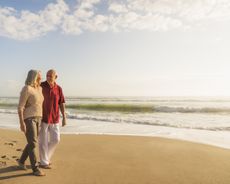 Why Do People Retire in Florida? 9 Things You Must Know
Why Do People Retire in Florida? 9 Things You Must KnowAttention Florida-bound retirees: There's more to the Sunshine State than Disney, golf and beaches.
By Bob Niedt Published
-
 How Interest Rates Affect Annuities
How Interest Rates Affect AnnuitiesFind out why higher interest rates benefit some annuities more than others.
By David Rodeck Published
-
 How to Use Annuities for Retirement Paychecks
How to Use Annuities for Retirement PaychecksPredictable income can provide stability and peace of mind. Here’s how to decide whether an annuity is right for you — and sort through the options.
By David Rodeck Published
-
Best Places to Rent 2024 — How Does Your City Rank?
The best places to rent in the U.S. include Miami, suburban Chicago and North Jersey, according to a new survey from RentCafe.
By Kathryn Pomroy Published
-
Are You Confident About Your Finances? Many Americans Are
More than 60% of Americans feel they are in better shape to reach their financial goals than the generations that came before them, according to a 2024 Schwab Survey
By Kathryn Pomroy Published
